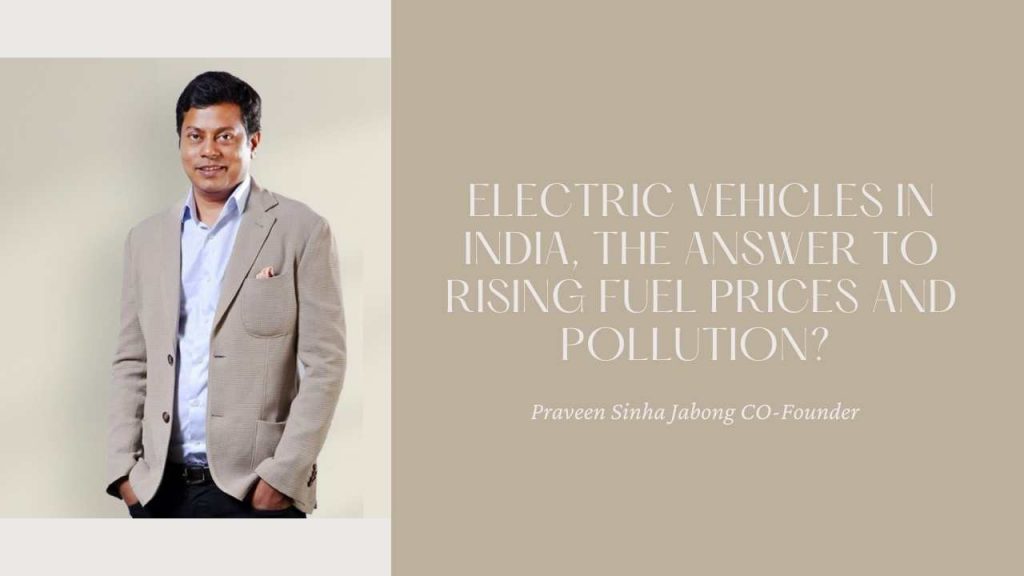Electric Vehicles in India, the answer to rising fuel prices and pollution? – Jabong Co Founder Praveen Sinha
Published on January 30, 2021
With fuel prices set to hit the 3 figure mark in 2021, and India’s vibrant cities featuring in the world’s top polluted cities on a regular basis, the demand for more sustainable, cheap and eco-friendly transportation could very well become the flavour for the automobile industry in the coming decade. The much talked about arrival of Tesla on Indian shores has definitely piqued the curiosity of the enthusiasts in the segment, says Praveen Sinha Jabong Co Founder. In a time when the industry is going through a lull, this piece of news has got a lot of press and with that the fair share of pessimism considering the state of infrastructure to support an EV ecosystem.

EVs and the challenges in India
Out of the 2.4 million cars sold last year in India, around 5000 were Electric vehicles. This number alone doesn’t make for the best reading but manufacturers remain optimistic on the adoption of EVs going into the next few years. The likes of Tata, Mahindra, Hyundai etc. are all readying EV launches going into 2021 and with fuel prices at an all-time high, it will be interesting to see whether that factor manages to swing some potential buyers into an all new segment. Take for example, the case of Norway, where just 1% of the total vehicles were Electric a decade ago but now the majority, a huge 54% of the vehicles are electric. “This is a huge upside which cannot be ignored and auto makers realize that in India, they do not need that sort of a percentage to make huge returns considering the sizable population of the country,” feels Praveen Sinha.
However, there are many challenges for the ecosystem to mature and some key pointers to address would be –
- Infrastructure – Charging infrastructure is critical to the EV industry and we have next to none in India. Also, the building of such an infrastructure can put pressure in our already overloaded Electrics network. “Using sustainable sources of energy such as solar power could prove important in developing India’s EV charging infrastructure, opines Praveen Sinha.
- Entry cost – With fossil fuel versions available at 2/3rd of the cost, will the price conscious Indian consumer be willing to make the trade off for lower fuel costs and environmental friendly vehicles? A Tesla 3 is expected to retail at 60 lakhs per unit in India, making it well out of reach of the average India buyer.
- Lack of financing – Banks are not as friendly towards financing an EV purchase in comparison to a traditional vehicle. Factors such as resale value, vehicle longevity and battery life are considered, making this an unfavourable transaction from the bank’s POV.















